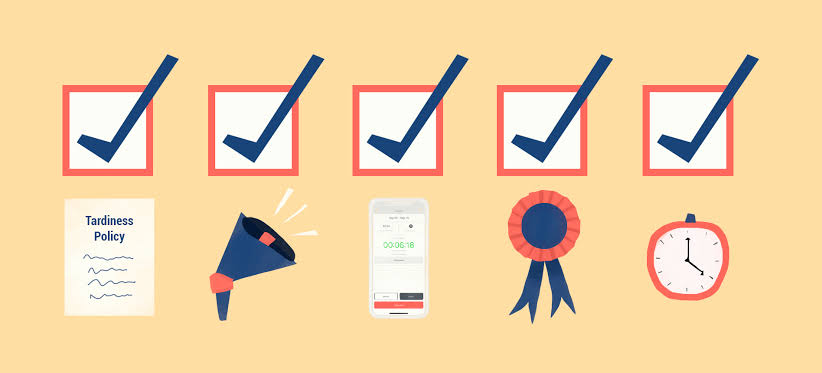Despite our best efforts on projects, we sometimes still make errors because we are all fallible. Some of these errors are trivial, while others are serious, and even fatal.
Speaking of errors, I am referring to human errors and not deliberate violations or intentional failures. Generally, human errors include slip of action, lapses of memory, rule-based mistakes, and knowledge-based mistakes. Unfortunately, these types of human error can happen to even the most experienced and well-trained professional.
In this article, we will discuss everything you need to know about slips, lapses and mistakes, and how you can deal with them.
Slips and lapses
Slips simply mean not doing what you are meant to do while lapses mean forgetting to do something, or losing your place midway through a task.
Slips and lapses occur in very familiar tasks which we can carry out without much conscious attention, for example, driving or operating a machine. These tasks are very vulnerable to slips and lapses when our attention is diverted even for a moment.
Examples of slips include:
🔺performing an action too soon in a procedure, or leaving it too late. For example, not putting your ear plugs on before starting the drill.
🔺omitting a step or series of steps from a task. For example, forgetting to turn on the tap while wetting a surface.
🔺carrying out an action with too much or too little strength. For example, over-torquing a bolt.
🔺performing an action in the wrong direction. For example, a crane operator pushing the joystick to the left instead of the right.
🔺doing the right thing but on the wrong object. For example, selecting the wrong size nail for the job.
🔺carrying out the wrong check but on the right item. For example, checking a dial but for the wrong value.
Examples of lapses include:
🔺forgetting to nail down a joist.
🔺taking your googles off to talk to a colleague and then forgetting to put it back on.
🔺failing to secure scaffolding because of an interruption.
🔺forgetting to remove a radiator before removing the wallpaper.

When do slips and lapses occur?
Slips and lapses occur when:
🔺the task is very familiar and requires little thought.
🔺people confuse two similar tasks.
🔺tasks are too complicated and long-winded.
🔺the main part is done but the finer details are missed.
🔺steps in a procedure don’t follow naturally.
🔺there are distractions and interruptions.
How can you reduce slips and lapses?
🔺make all workers aware that slips and lapses do happen.
🔺use checklists to help confirm that all actions have been completed.
🔺include in your procedures the setting out of equipment, site layout and methods of work to ensure there is a logical sequence.
🔺make sure checks are in place for complicated tasks.
🔺try to ensure distractions and interruptions are minimized. For example, introduce mobile phone policy.
Mistakes
Rule-based mistakes and knowledge-based mistakes are decision-making failures. They arise when we do the wrong thing, believing it to be right.
Examples of mistakes include:
🔺making a poor judgement when overtaking, leaving insufficient room to complete the manoeuvre in the face of oncoming traffic.
🔺an operator misinterpreting the sound of a machine breakdown and failing to switch off immediately.

Why do mistakes occur?
🔺Doing too many things at the same time.
🔺Doing too many complex tasks at once.
🔺Time pressures.
Factors that contribute to workers making mistakes
🔺The work environment – too hot, too cold, poor lighting, restricted workspace, noise.
🔺Extreme task demands – high workloads, boring and repetitive jobs, jobs that require a lot of concentration, too many distractions.
🔺Social issues – peer pressure, conflicting attitudes to health and safety, conflicting attitudes of workers on how to complete work, too few workers.
🔺Individual stressors – drugs and alcohol, lack of sleep, family problems, ill health.
🔺Equipment problems – inaccurate or confusing instructions and procedures.
🔺Organisational issues – failing to understand where mistakes can occur and implement controls, such as training and monitoring
How can you reduce mistakes?
🔺To avoid rule-based mistakes, increase worker situational awareness of high-risk tasks on site and provide procedures for predictable non-routine, high-risk tasks.
🔺To avoid knowledge-based mistakes, ensure proper supervision for inexperienced workers and provide job aids and diagrams to explain procedures.

How can we best cope with our fallibility?
🔺First, we must recognize and accept our fallibility as inevitable.
🔺Second, we must provide safeguards for our fallibility, such as checklists and oversight by colleagues.
🔺Third, we must treat our mistakes with acknowledgment and apology, not denial and cover-ups.
🔺And finally, we must analyze our mistakes, in order to avoid repeating them.
Final words
Fallibility is an inherent part of the human condition, and we must not be ashamed of our humanity even as designers, engineers and contractors.
Reference
[1] Leadership and Worker Involvement Toolkit: Understanding Human failure – HSE. https://www.hse.gov.uk
Have you visited our bookstore today? 🥰

Click here to preview the book

Click here to preview the book
Thank you for visiting C-E Channel today.
It is an honour to have you 🤭
















